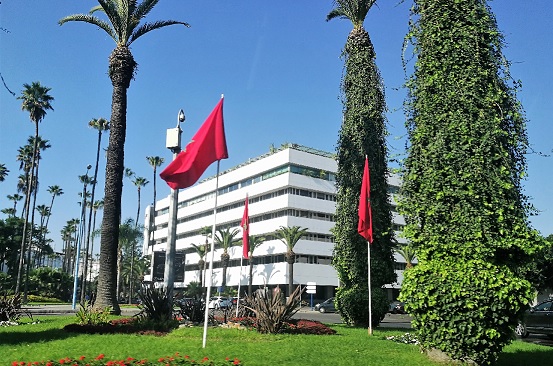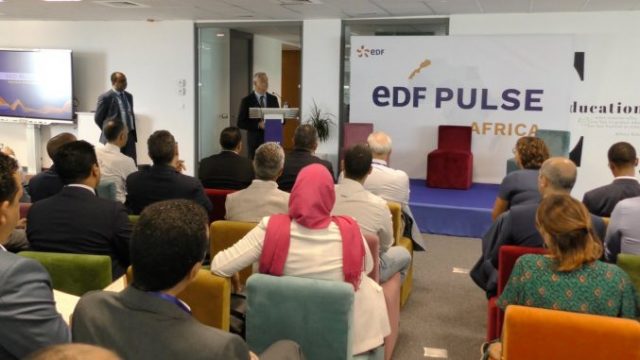by Frank HerseyThe trend for this week is mobile – mobile banking, payments, SIM registration and even a mobile app to check someone’s ID from a photo of their thumbprints. It’s also African providers and developers which have been making the progr…...
By Frank Hersey - The trend for this week is mobile – mobile banking, payments, SIM registration and even a mobile app to check someone’s ID from a photo of their thumbprints. It’s also African providers and developers which have been making the progress. Except in Zimbabwe where the Ecocash mobile money platform has been shut down in the country’s worsening economic situation. Western biometrics firms have also made some progress yet Securiport faces difficulties in securing a large settlement payment from Benin.
Central Africa: UNECA conference calls for digital transformation – and digital ID
The Central African sub-regional office of the United Nations Economic Commission for Africa (ECA) and the government of Equatorial Guinea have called for a whole new approach to the digital economy and to capture the benefits of digital ID at a four-day conference in Malabo, reports Modern Ghana.
Equatorial Guinea’s Minister of Economy, Planning and Finance, César Augusto Mba Abogo, gave a damning assessment: “We are late for the 4th industrial revolution and we run the risk of becoming mere spectators and consumers of the global economy oriented towards a digital economy”.
The conference resulted in several calls for action for Central Africa. Each Member State should establish national digital identity schemes as legal identity will aid e-commerce, social protection, financial inclusion, efficient public services and greater access.
Governments of the subregion should commit to making the digital economy a fundamental pillar of economic diversification. They should also implement the November 2016 Brazzaville Declaration of ECCAS Ministers of ICTs to establish a sub-regional mobile phone roaming system and create a regional database to measure their efforts towards reaching the UN’s Sustainable Development Goals.
Benin: Securiport still waiting for $95m arbitration payment as rumors about president circulate
U.S. airport technology supplier Securiport is still waiting for a $95 million payout after it lost its concession at Cotonou-Cadjehoun airport in 2016, reports African Intelligence. The arbitration court made its decision eight months ago. The concession was reportedly granted to a company with close ties to the president of Benin, Patrice Talon.
Africa Intelligence states that Benin’s Brigade Economique et Financiere, under the Ministry of the Interior, has issued a summons to Securiport’s executive director Enrique Segura and two partners to attend questioning in Cotonou on September 16. The report claims sources have said the questioning is over documents provided to the International Chamber of Commerce in Paris which reached the finding.
In the meantime, President Talon went missing, having not been seen for 10 days from September 13 according to African Intelligence, with speculation about his health and whereabouts mounting.
In better news for Securiport, the passport scanning gates at departures in Abidjan airport, Côte d’Ivoire, are finally in operation, though appear somewhat underutilized.
Morocco: Idemia delivers new biometric cards to national security directorate
French biometric systems manufacturer Idemia has delivered a batch of Morocco’s new ID cards to DGSN, the national security directorate, reports African Intelligence. The cards are for the entire population including children and are used for accessing public services.
The company won the tender despite not being considered a favorite, competing against France’s Imprimerie Nationale which re-branded to the IN Groupe last year.
South Sudan: Mobile money and biometric banking
Two new mobile money platforms are proving popular in South Sudan after their August launch and publicity blast, reports the Associated Press. Nilepay which has Kenyan and South Sudanese owners and m-GURUSH owned by local company Trinity Technologies have partnered with mobile operator Zain. Nilepay is attempting to use fingerprints as one way to register.
Only 16% of the population of the new country has ID. While they can still receive mobile money, their withdrawal fees will be higher and they cannot send it.
Over fears of crime and money laundering, rather than seeking transaction data from the new mobile money platforms, the government is hoping to install a system that will give the Central Bank and telecoms regulators this access.
South Africa: WhoYou app to prove ID with smartphone photos of thumbprints
A new app has been launched that is designed to tackle fraud in South Africa. According to The South African, there were 66,000 cases of fraud in the country in the first quarter alone, the majority involving identity theft.
Upload a photo of someone’s two thumbprints to the WhoYou app and it sends the prints to the Department of Home Affairs’ National Population Register for verification.
The app was developed by South African firm Fides and requires consent from the person photographed for it to work.
Meanwhile, the police in China are warning people not to adopt the popular Victory V sign with their fingers in photos as high resolution images allow criminals to zoom in and steal their fingerprints.
Zambia: South Africa’s Axon Wireless biometrically registers millions of Zambian SIMs
3,000 agents have successfully captured the biometrics of ‘several million’ Zambians to match KYC requirements for SIM card registration, reports Tech Financials.
“This is pan-African knowledge transfer at its best. After using South Africa as a proving ground, we took what worked and totally customized it for Zambia. In the process, income opportunities have been created in a fellow African country and MNO efficiency improved,” Justin Lipshitz, CEO of Axon Wireless is quoted as saying.
Tanzania: ID compulsory to work for the government as mobile money soars
It is now compulsory to have a national ID number or card in order to apply for government jobs in Tanzania, reports The Citizen. Yet as of June, only five million of a target of 22 million ID cards had been issued.
Tanzania is reporting fast-growing mobile money transactions. The figure for June was a staggering 8.32 trillion shillings according to The Citizen worth $3.62 billion, or around $82 per active SIM card or $157 per mobile money account. This is a Sh873.84 billion increase on May’s Sh7.4 trillion. 59% flowed through M-Pesa, 24% through Tigo Pesa.
The Daily News reports the Tanzania’s NBC bank has devised a paper-free onboarding process that will allow new customers to open an account with ID in just five minutes, going away with an ATM card and mobile banking.
Ghana: Thales, Gemalto, Paycode to supply dual function card for E-zwich system
The Gemalto division of Thales is to work with Paycode to supply the Ghana payments system – the Ghana Interbank Payment and Settlement System (GhIPSS) – with a dual function card: Gemalto’s PURE EMV white-label payment system plus Paycode’s universal electronic payment system, reports IBS Intelligence.
GhIPSS already uses Gemalto’s PURE application and the Paycode tech will work as an end-to-end payment gateway to make sending and receiving payments easy. Ghana is hoping to promote card payments and financial inclusion and has recently announced that civil servants will have to link their accounts to an E-zwich card in order to be paid.
In brief – Africa: Fifth Conference of African Ministers Responsible for Civil Registration Innovative Civil Registration and Vital Statistics System with the theme ‘Foundation for Legal Identity Management’ will take place 14-18 October in Lusaka, Zambia.
Original Source: https://www.biometricupdate.com/201910/digital-id-in-africa-this-week-local-mobile-banking-and-biometric-verification-technology-soar-ahead




